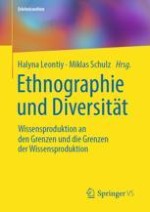2020 | OriginalPaper | Buchkapitel
The Discourse of Diversity and the World Music: Tensions Between Stimulating and Controlling the Difference
verfasst von : Pedro Martins de Menezes
Erschienen in: Ethnographie und Diversität
Verlag: Springer Fachmedien Wiesbaden
Aktivieren Sie unsere intelligente Suche, um passende Fachinhalte oder Patente zu finden.
Wählen Sie Textabschnitte aus um mit Künstlicher Intelligenz passenden Patente zu finden. powered by
Markieren Sie Textabschnitte, um KI-gestützt weitere passende Inhalte zu finden. powered by
